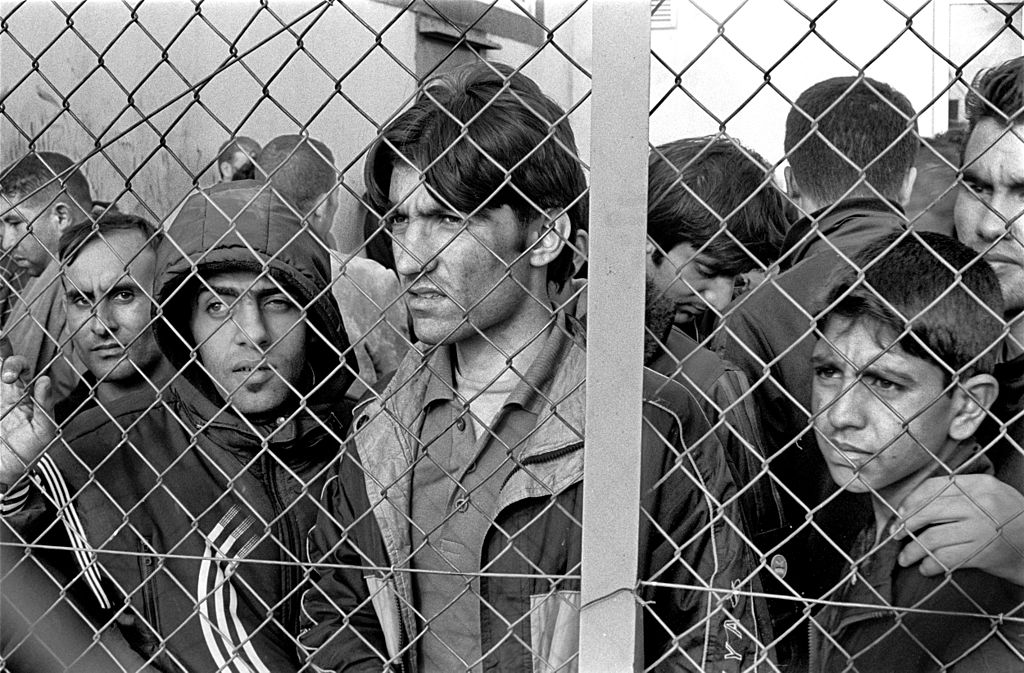The European Court of Human Rights has decided that the detention of an Iranian national in immigration detention in the UK violated his right to liberty, although the lack of maximum time period for detention is not automatically a human rights violation.
What is immigration detention and how does it affect the right to liberty?

Everyone has the right to liberty and security of person, though this right can be limited in some circumstances (including when the authorities lawfully detain a person they are trying to deport). The right is protected under the European Convention on Human Rights (ECHR) which has effect in UK law though the Human Rights Act. It means that you cannot be locked up arbitrarily.
There are several immigration detention centres in the UK. A large number of people pass through them and some people are kept in immigration detention for long periods. The European Convention on Human Rights does not specify a maximum period of detention, but many States have imposed domestic time limits on immigration detention. The UK, however, judges the ‘reasonableness’ of the length of detention on the facts and circumstances of each case – without any upper limit.
Why are we talking about this?

An Iranian man (known as J.N.) was held in immigration detention for more than four and a half years (55 months in total – from March 2005 to December 2007 and from January 2008 to December 2009).
J.N. came to the UK in 2003. His claim for asylum was refused. He was convicted of indecent assault and issued a deportation order. He refused to sign a disclaimer saying he consented to being returned to Iran. This led to a prolonged impasse during which he spent extensive periods in immigration detention.
J.N. challenged his detention. A UK court said that there had been a “woeful lack of energy and impetus” applied to his case from at least the middle of 2008. The UK court concluded that his detention had been unlawful from September 2009. J.N. took his case to the European Court of Human Rights, complaining about the length of detention as well as the system of immigration detention in the UK, arguing in particular that the time-limits on the maximum period of immigration detention had been unclear and that there was no automatic review of his detention.
What did the European Court of Human Rights say?
Did the handling of his detention breach J.N’s human rights?
Yes. The judges found that J.N.’s detention between the period of January 2008 and September 2009 was a breach of his right to liberty. The Court was not convinced that his deportation was being pursued with “due diligence”.
Should there be a maximum period of immigration detention in the UK?

The Court reiterated that the right to liberty in the ECHR does not prescribe maximum time-limits for detention pending deportation. A time limit is just a factor which the Court will take into account in its overall assessment of whether domestic law is sufficiently foreseeable (to avoid rendering detention arbitrary).
The Court recognised that the UK has been criticised for not adopting a time-limit for the detention of immigrants. A 2015 report of the cross-party Parliamentary Inquiry into Immigration Detention in the UK said that the UK is exceptional in not having a time limit on migrant detention. But the Court said that, just because other States have adopted time limits for immigration detention, it does not mean that a time limit is required under the European Convention on Human Rights. The Court recognised that other systems may be compatible with the right to liberty, and the UK’s current system satisfied it on this occasion.
This affirms a recent UK Supreme Court judgment – R (on the application of Nouazli) v SSHD – from 20 April 2016. The Supreme Court concluded that a time limit on immigration detention is not a requirement of the right to liberty, as long as there is a procedure capable of avoiding the risk of arbitrary detention.
What about an automatic independent review of prolonged detention?
The Court decided that this would be unnecessary, since a person in immigration detention in the UK can already “at any time” bring an application for judicial review to challenge the lawfulness of their detention.
- You can read the judgment here.
- Read a recent opinion from one of our volunteers on why a lack of time limits on immigration detention is problematic here.
- Learn more about the right to liberty and security of person with our infographic poster.






